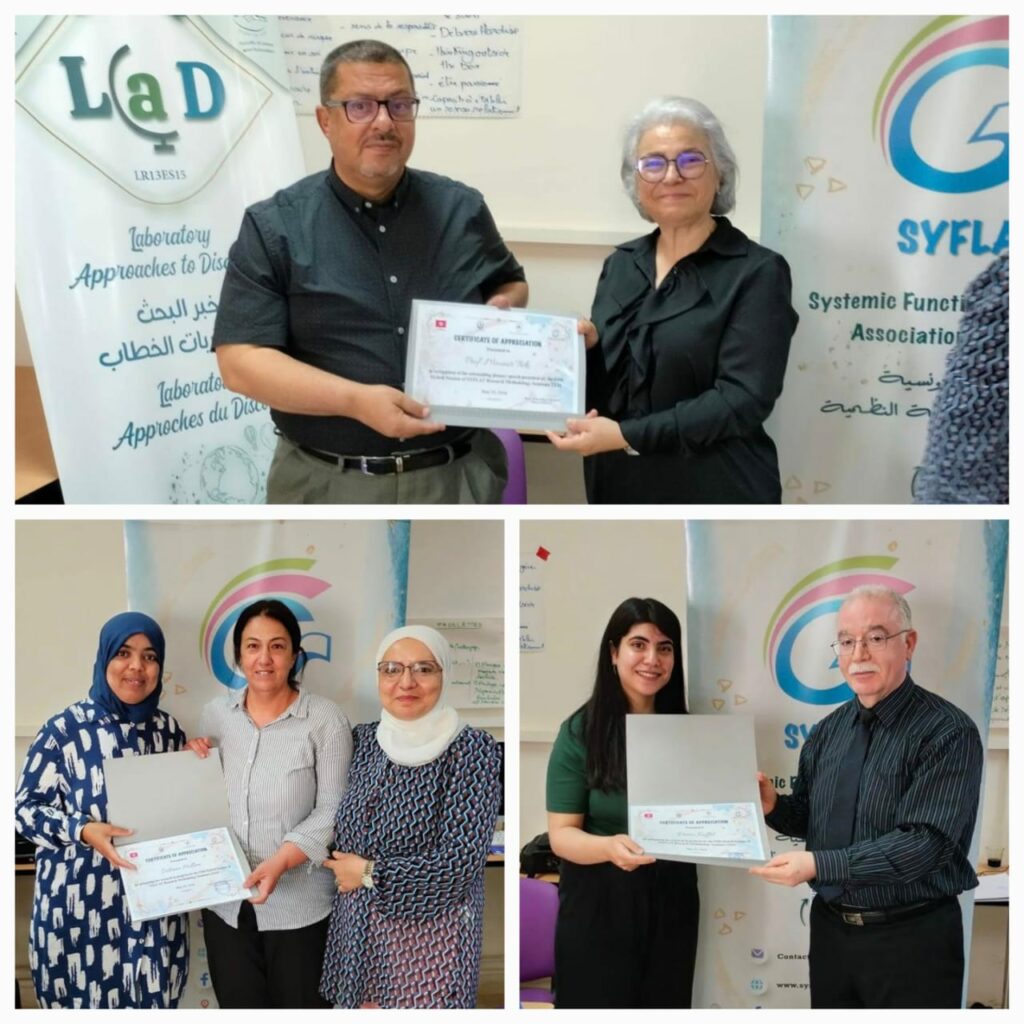HYBRID Session of SYFLAT Research Methodology Seminars 2023/2024
The program
09:30-10:30: Keynote Speaker: Prof. Mounir Triki
Title: The Interface between Pragmatics and Translation:
The Latest Developments
10:30-11:00: Coffee Break
11:00-11:45: Speaker 2: Donia Kaffel
Title: Linking Adverbials across Genres and Disciplines: A Corpus-Based Study in Tunisian Academic Writing
Abstract: Cohesion plays an instrumental role in establishing relations of meaning that characterize and define a text (Halliday & Hasan, 1976). It is of special importance in academic discourse as it aids in establishing clarity and persuasiveness. The cohesive devices explored in this study are linking adverbials (LAs) used in research articles and Ph.D. theses written by Tunisian researchers across four disciplines. LAs are examined as cohesive as well as conjunctive and metadiscourse markers. The aim is to investigate the effects of a hybrid context, manifested in genre and disciplinary variation (Sellami Baklouti, 2016), on the use of LAs as cohesive lexico-grammatical devices, maintaining a Systemic Functional perspective. To this end, a sample of the corpus is extracted and annotated using the UAM CorpusTool. The distribution of LAs is analyzed statistically, maintaining a quantitative analysis that is complemented by qualitative methods. Preliminary results indicate that the frequency of LAs is affected by genre features and communicative moves. Variations in the use of LAs are also attributed to the research paradigms adopted by each discipline, supporting disciplinary variation and distinctiveness.
11:45-12:30: Speaker 3: Sabrine Hallem
Title: The Impact of CF Strategy Training on Tunisian EFL Learners’ and Teachers’ Beliefs about CF, FLA and FLE
Abstract: Research into oral corrective feedback (OCF) has widely been studied in SLA research. With the introduction of positive psychology into SLA, there has been a growing interest in studying the role of emotions in the process of language learning. While some studies explored the effect of CF training on CF provision, effectiveness and achievement (Kartchava, 2021; Taddarth, 2016), only few studies have examined the impact of CF training on learners’ and teachers’ CF beliefs. For this purpose, the present study investigates the effect of CF strategy training on Tunisian EFL teachers’ and learners’ CF beliefs and perceived FLA and FLE. To meet this end, an explanatory sequential research design is adopted to provide comprehensive understanding of this impact by means of
(1) describing, (2) comparing and (3) correlating teachers’ and learners’ CF beliefs and perceived FLA and FLE.



